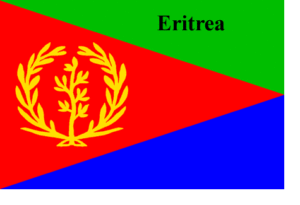 Although Eritreans are guaranteed free primary schooling, the country’s education system continues to face numerous challenges brought on by years of war and drought. Eritrea’s government, with the help of development partners, has implemented a variety of programs designed to improve access to education and increase the ranks of qualified teachers. Elementary education is conducted in locally spoken languages and/or Arabic, while children in middle and secondary schools learn in English.
Although Eritreans are guaranteed free primary schooling, the country’s education system continues to face numerous challenges brought on by years of war and drought. Eritrea’s government, with the help of development partners, has implemented a variety of programs designed to improve access to education and increase the ranks of qualified teachers. Elementary education is conducted in locally spoken languages and/or Arabic, while children in middle and secondary schools learn in English.
Preschools serve children aged 5-6 and are mainly found in Asmara, the country’s capital. Primary education begins at age 7 and lasts five years; it is followed by three years of middle school. Depending on the results of middle school leaving exams, students able to pursue secondary education – grades 9-12 – may choose either a science or commerce path. Following high school, students take the Eritrean School Leaving Certificate Examination (ESLCE).
The following chart depicts the grading scale for secondary and post-secondary institutions:
| Scale | Description | U.S. Grade Equiv. |
|---|---|---|
| 75.00-100.00 | Excellent | A |
| 65.00-74.99 | Very good | B |
| 50.00-64.99 | Good | C |
| 40.00-49.99 | Satisfactory | D |
| 0.00-39.99 | Poor | F |
Primary students study Tigrinya, Arabic, or another local language; English (beginning in 2nd grade), mathematics, social studies, science, physical education, music, art and practical skills.
Secondary students take English and Arabic; world, African, and Eritrean history and geography; civics, mathematics, physical and natural sciences, art, physical education, music, and technology. Depending on their area of specialization, students will spend additional time in business or science-related courses.
Higher education in Eritrea is offered by the country’s public University of Asmara, which awards degrees and certificates in technology, marine science, business and economics, agriculture, arts and social sciences, and health sciences. A teacher training institute and a number of vocational schools provide programs in agriculture, building trades, and business-related disciplines. Students wishing to pursue post-secondary studies look to distance learning through foreign-based schools.
© 2026 Gaetranslations | Terms & Conditions
Website by: Timefortheweb